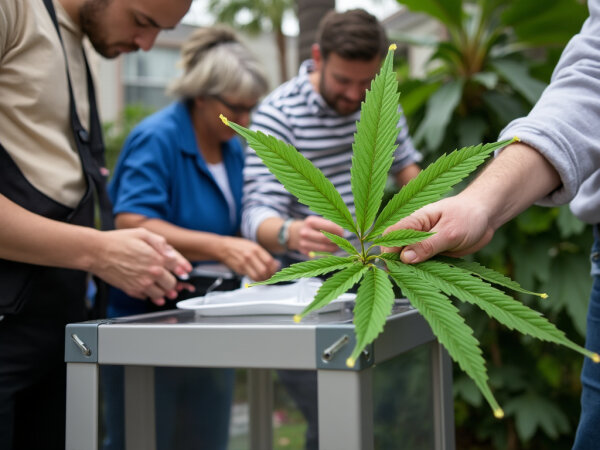Amendment 3 Sparks Last-Minute Debate Among Florida Officials and Advocates

11/01/2024
With just days until Florida’s election, Amendment 3 is drawing polarized reactions from prominent state officials and advocates. If approved, the amendment would legalize recreational marijuana use for adults 21 and older, eliminating the need for a medical marijuana permit. While recent polling from the University of North Florida suggests 66% of likely voters support the measure—well above the 60% threshold required for passage—a Florida Chamber poll shows a narrower margin at 57%.
Florida Surgeon General Dr. Joe Ladapo, appointed by Governor Ron DeSantis, has voiced caution regarding the potential health and societal effects of expanded marijuana use. Though he stopped short of urging a “no” vote, Dr. Ladapo highlighted health risks associated with cannabis, citing National Institutes of Health (NIH) data on its connection to mental health issues, addiction, and certain cancers. He also expressed concern about marijuana’s impact on individuals’ “spiritual” growth, stating, “Drugs diminish our ability to be all that we can be, to be representations of God’s love, God’s light, God’s wisdom, God’s care.”
Governor DeSantis has also been vocal, funding public service announcements that caution against cannabis legalization, citing potential quality-of-life impacts and financial incentives for marijuana companies like Trulieve, a key Amendment 3 backer. The company has invested over $80 million in the campaign, sparking criticism of potential corporate motives.
Trulieve CEO Kim Rivers, however, contends that expanding access could reduce illegal cannabis use, pointing to data showing teen use drops with legalization. She assures voters that Florida’s rigorous safety protocols for medical cannabis would extend to recreational products, saying, “We have a framework in place. We're not building from scratch.” Rivers also emphasized Florida’s cannabis industry’s competitiveness, noting that 25 companies already operate in the medical market, with 22 more licenses awaiting approval on the governor’s desk.
Beyond the health and safety arguments, the amendment has garnered bipartisan support in the legislature, partly due to the anticipated hundreds of millions in new tax revenue. As advocates like Rivers continue their efforts, both sides recognize that the outcome lies in the hands of Florida voters, potentially marking a pivotal shift in the state’s approach to cannabis.
Reference
Florida Surgeon General Dr. Joe Ladapo, appointed by Governor Ron DeSantis, has voiced caution regarding the potential health and societal effects of expanded marijuana use. Though he stopped short of urging a “no” vote, Dr. Ladapo highlighted health risks associated with cannabis, citing National Institutes of Health (NIH) data on its connection to mental health issues, addiction, and certain cancers. He also expressed concern about marijuana’s impact on individuals’ “spiritual” growth, stating, “Drugs diminish our ability to be all that we can be, to be representations of God’s love, God’s light, God’s wisdom, God’s care.”
Governor DeSantis has also been vocal, funding public service announcements that caution against cannabis legalization, citing potential quality-of-life impacts and financial incentives for marijuana companies like Trulieve, a key Amendment 3 backer. The company has invested over $80 million in the campaign, sparking criticism of potential corporate motives.
Trulieve CEO Kim Rivers, however, contends that expanding access could reduce illegal cannabis use, pointing to data showing teen use drops with legalization. She assures voters that Florida’s rigorous safety protocols for medical cannabis would extend to recreational products, saying, “We have a framework in place. We're not building from scratch.” Rivers also emphasized Florida’s cannabis industry’s competitiveness, noting that 25 companies already operate in the medical market, with 22 more licenses awaiting approval on the governor’s desk.
Beyond the health and safety arguments, the amendment has garnered bipartisan support in the legislature, partly due to the anticipated hundreds of millions in new tax revenue. As advocates like Rivers continue their efforts, both sides recognize that the outcome lies in the hands of Florida voters, potentially marking a pivotal shift in the state’s approach to cannabis.
Reference







